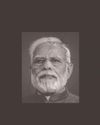
Ms. Brown didn't tell me where we were going. I knew we would be visiting someone important, a literary figure, because we took a gypsy cab instead of the subway. It would probably be someone I should have known, but didn't.
A brownstone in Harlem. It was immaculate paintings of women in headscarves; a cherry-colored oriental rug; a dark, gleaming dining-room table. Ms. Brown led me toward a woman on the couch. She knew that I would recognize her, and I did, despite the plastic tube snaking from her nostrils to an oxygen tank. Maya Angelou's back was straight. Her rose-pink eyeshadow sparkled.
My mind called up random bits of information from I Know Why the Caged Bird Sings. Canned pineapples-she loved them. Bailey-her brother's name. What she felt when she heard someone read Dickens aloud for the first time the voice that "slid in and curved down through and over the words." And that, like me, she had called her grandmother Momma.
"What's your name?" she asked.
"Jenisha."
"Last name?" she shot back.
"Watts."
Maya Angelou now knew my name.
The party was for the poet Eugene B. Redmond. Amiri Baraka was there. The family of James Baldwin. And Nikki Giovanni, who once wrote-just to me, it felt like "Though you're poor it isn't poverty that/concerns you."
By then I knew how to mingle with literary types at networking events. But I always felt like my worth was tied to my job, or my education, or my family background. This night was different. I didn't have to prove myself. It was assumed that everyone here was important, because who else would possibly be invited to Maya Angelou's brownstone? In my head, I created stories about who I might be to these people. Maybe I was a young poet of great promise, or a family friend of Maya's, or even her granddaughter. Having Maya Angelou as my grandmother would have been nice. Toni Morrison, too. And James Baldwin for a granddad.
This story is from the October 2023 edition of The Atlantic.
Start your 7-day Magzter GOLD free trial to access thousands of curated premium stories, and 9,000+ magazines and newspapers.
Already a subscriber ? Sign In
This story is from the October 2023 edition of The Atlantic.
Start your 7-day Magzter GOLD free trial to access thousands of curated premium stories, and 9,000+ magazines and newspapers.
Already a subscriber? Sign In

Apocalypse, Constantly
Humans love to imagine their own demise.

A Palestinian American Sex and the City
Betty Shamieh's debut novel is a rebellious rom-com.

Modi's Failure
Why India is losing faith in its strongman leader

The Anti-Social Century
Americans are now spending more time alone than ever. It's changing our personalities, our politics, and even our relationship to reality.

The Wild Charity of Saint Francis
The guide we need, now that kindness is countercultural

Where Han Kang's Nightmares Come From
In her novels, the South Korean Nobel laureate returns again and again to her countrys bloody past.

TROPHY HUNTERS
A GROUP OF CHILDHOOD FRIENDS PULLED OFF A STRING OF THE MOST AUDACIOUS SPORTS-MEMORABILIA HEISTS IN AMERICAN HISTORY. THEN THEY DID SOMETHING REALLY CRAZY.

THE NEW RASPUTINS
Anti-science mysticism is enabling autocracy around the globe.

ARMY OF GOD
AMERICAN CHRISTIANS ARE EMBRACING A CHARISMATIC MOVEMENT KNOWN AS THE NEW APOSTOLIC REFORMATION, WHICH SEEKS TO DESTROY THE SECULAR STATE. Now THEIR WAR BEGINS.

WHAT NOT TO WEAR
The false promise of seasonal-color analysis